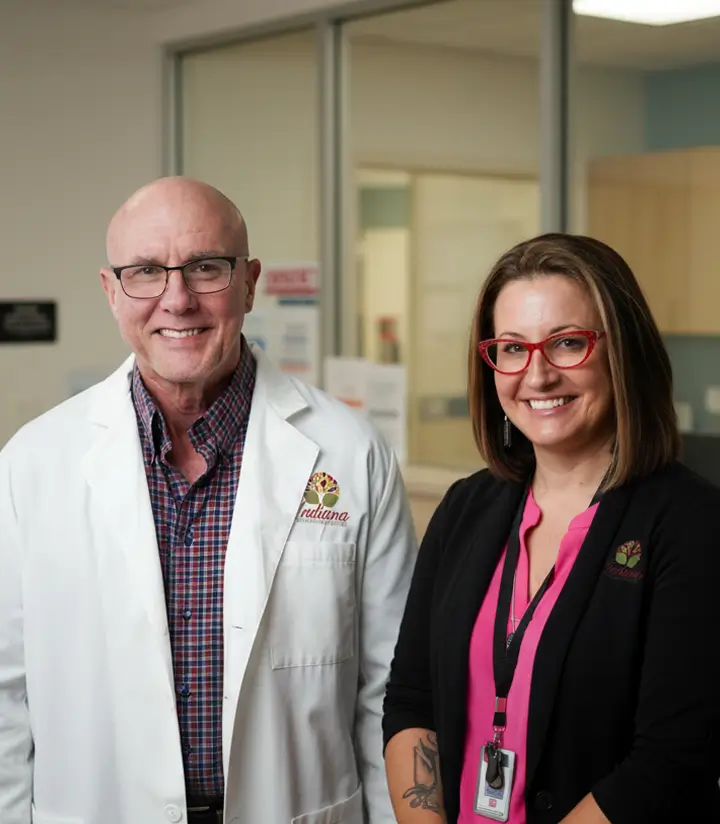Holiday Mental Health Support from Indiana Center for Recovery
Check In and Reach Out is a seasonal mental health initiative designed to help people notice when someone is struggling and feel more comfortable…
More than 1.1 million adults in Indiana live with a mental health condition ⓘ
These issues can affect every part of life. Recognizing the signs of a mental health condition can help you know when something’s wrong and what your options are for getting support and treatment.
Mental health conditions are medical disorders that affect mood, thinking, and behavior. They can change how a person feels, processes information, and functions in daily life.
Some conditions develop gradually, while others show up suddenly. They may be short-term or ongoing.
Mental health conditions are complex medical issues shaped by genetics, brain chemistry, life experiences, and environment — and they can be treated.
Want to better understand mental health, symptoms, and treatment options? Our blog covers it all — from recognizing early warning signs to exploring therapy types, medication, and how to support someone who’s struggling.
Check In and Reach Out is a seasonal mental health initiative designed to help people notice when someone is struggling and feel more comfortable…
Discover effective tips to boost your mental health and well-being.
When should you go to a therapist? Is a psychiatrist better than a therapist? Indiana Center for Recovery explains here.
Men's Mental Health Month is observed in June. find out more about it with Indiana Center for Recovery.
Explore the similarities and differences between mental and behavioral health with Indiana Center for Recovery.
Worried about social media’s impact on mental health? Learn effective coping strategies with Indiana Center for Recovery.
Learn what the Bible says about mental health in this comprehensive Indiana Center for Recovery guide.
Why does someone avoid seeking help for mental health concerns? Learn with Indiana Center for Recovery.
Explore how mental health disabilities impact daily life and find helpful resources with the Indiana Center for Recovery.
Learn about the different barriers that come along the way to mental health recovery with Indiana Center for Recovery.
Indiana Center for Recovery provides integrated care tailored to your recovery needs. Our comprehensive services include detox, residential programs, outpatient support, and family programs.
We also have dual diagnosis treatment for individuals with co-occurring mental health disorders.

Error: Contact form not found.

 Get Answers Now
Get Answers NowYou don’t have to figure this out alone. We can guide you through your options—completely confidential and with zero commitment.
100% Private